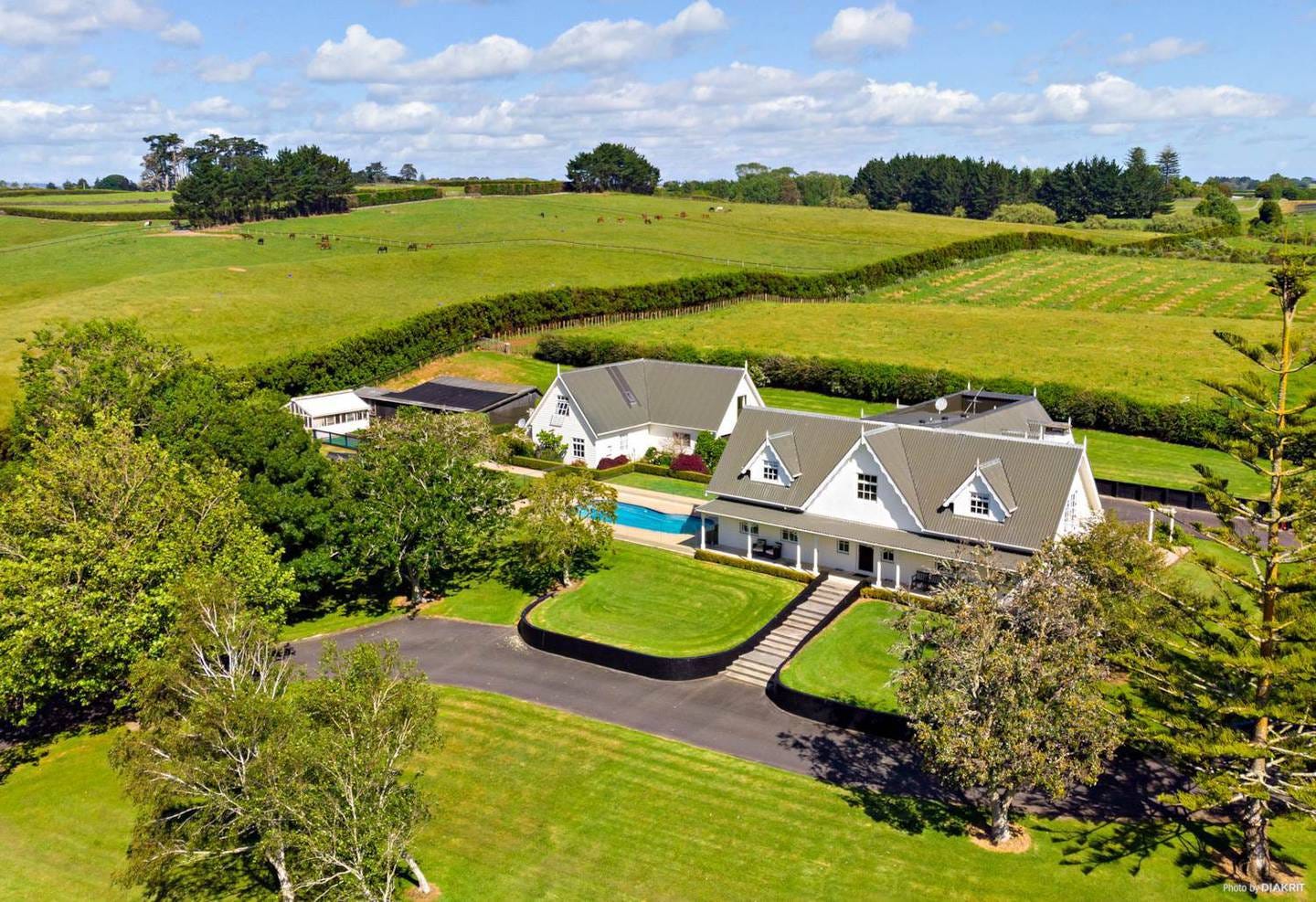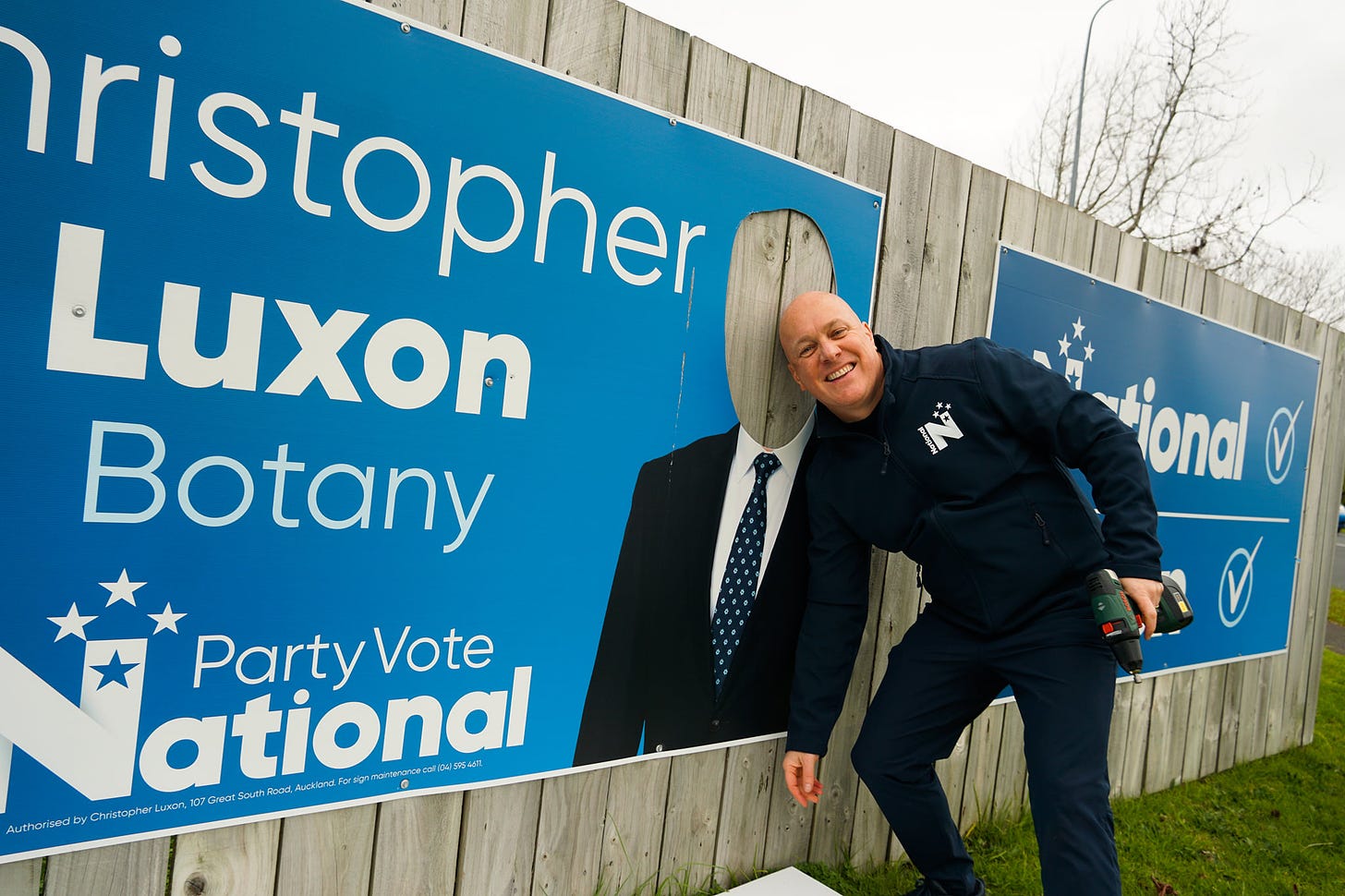Kia ora! I was not going to do an explainer so soon after our last one (on Rent Freezes) but it felt really timely to do it now with Labour’s so-called “no frills” budget.
I don’t know much about taxes so I asked Max Rashbrooke, Senior associate, Institute for Governance and Policy Studies, to explain to me what a wealth tax is. Max has a great TED talk: 'Three Ways to Upgrade Democracy' and he’s the author of Too Much Money: How Wealth Disparities are Unbalancing Aotearoa New Zealand. It’s an excellent book and I thoroughly recommend you buy it from your local bookstore.
For the Explainer series I ask the questions you want me to ask about election issues given we are in an election year. Previously, I talked to Simon Wilson about The Government's Three Waters Reform and Mark Potter about the national teacher strikes. And last week I spoke to Renters United national organiser Éimhín O'Shea about rent control and rent freezes.
Your paid subscriptions and the generosity of our experts who give their time to answer these questions allow us to keep the series going. Let’s go!
The photos are my choices and the captions are written by moi….
Emily: Hi Max. Thank you so much for agreeing to do this. I really appreciate it and I know my readers do too. So I reckon we should just get stuck in.
What is a wealth tax?
Max: A wealth tax is a low-rate annual levy on the largest fortunes. It’s designed to ensure that people with large fortunes, who are often pretty good at avoiding income tax, still make a decent contribution to the public coffers. And it addresses the fact that wealth generates wealth: if you have a lot of assets, you can invest and watch them grow, without actively working for that increase in wealth.
In practical terms, in New Zealand a wealth tax might mean asking people each year to pay 1% of any wealth they hold over a certain threshold, say, $2 million. Something like the top 5% of taxpayers would be affected. In this example, if someone had assets of $3 million (and no debt), they would pay tax on the $1 million that they have above the threshold. 1% of $1 million is $10,000, so that would be their wealth tax bill for the year.
Politically, who supports a wealth tax and who doesn’t? I’m guessing National and ACT are against it…Am I right?
You are correct. But Labour don’t like it either. Of the major parties, only the Greens have strongly pushed for one, although Te Pati Maori have indicated they are open to something similar.
What does a wealth tax achieve? And do you think we need one?
As above, it gets tax from people who might not otherwise pay it, and it addresses the “rich get richer” phenomenon. As to whether we need one, well, my starting point is that the tax system is – as the bombshell Inland Revenue report just showed us – fundamentally unfair. Low income earners pay tax on every cent of wages, and face flat-rate GST as well. Conversely, if you look at the upper end, people make most of their money (80% or so) from capital gains, i.e., selling assets. To me, that’s income just like a salary is income, but by and large it doesn’t get taxed. I also think gifts and inheritances are income: if your parents give you $80,000, for instance, that’s the same as earning $80,000 in salary – it has the same effect on your bank balance and your ability to consume. But again, we don’t tax gifts and inheritances. So even just our income tax system has two major holes.
On top of that, most countries also tax wealth in some form: land, property, financial assets (shares, bonds, etc) or just all wealth (as with a wealth tax). They do so because wealth is a different kind of resource to income, or because those with large fortunes are most able to contribute the extra tax needed to fund public services, or because countries want to reduce wealth inequality. But we don’t really tax wealth in New Zealand, except at the local level, in the form of rates.
The OECD view, in a big report published in 2018, is that countries should do one of two things: they should either tax all forms of income, so that they have capital gains and inheritance slash gift taxes; or, if they don’t have either of those, they should have a wealth tax. Because wealthy people make a lot of their income from capital gains and inheritances, the two methods kind of get you to the same place. And that’s pretty much my view. If we had capital gains and inheritance taxes, I’m not sure we’d need a wealth tax; but since we don’t have either of those, a wealth tax would be useful.

Do other countries tax wealth more than we do?
Yes, definitely. Every developed country has some kind of tax, at the national level, on either land, property, financial assets or all wealth. A handful of countries have a wealth tax specifically: Norway, Spain, Switzerland, Colombia, Argentina. The latter two have had a lot of success recently in taxing wealth, as I set out in this short piece for the UK magazine Prospect. Switzerland is also an interesting case: people think of it as quite conservative, but its wealth tax brings in around 1% of GDP, equivalent to $3.5 billion a year here.
On top of that, pretty much every developed country except us has a capital gains tax – Australia has one, the US has one, the UK has one. The latter two countries also have inheritance taxes on the very largest fortunes.
Why are we so against taxing assets as a country? I just don’t really get it. I mean I pay GST on my son’s medical devices…it feels like we tax the crap out of low-income earners…why is the government so afraid to tax assets?
We used to – New Zealand had land and property taxes in the nineteenth century, and taxes on inheritances (which I think are income but still…) from the 1890s until 1991, when they were abolished in the midst of all the right-wing economic reform. That was part of an international wave, of course – more countries used to have wealth taxes, beyond the few I named above, but several got rid of them from the 1990s onwards. So the political climate isn’t particularly favourable. Taxing wealth is also, obviously, more threatening to the wealthy than even a capital gains tax.
Taxing wealth does, finally, run into the odd difficulty, albeit nothing unmanageable. Just because people have wealth doesn’t mean they actually have the ready money to pay tax: they might be a relatively poor pensioner living in a $3 million Auckland house, for instance. You can deal with that, of course, generally by letting the tax owed build up as a debt with Inland Revenue until the asset is sold (which may be when the person dies). But that is a little bit more complicated than income taxes, which are easy for people to pay because they pay them when they have the income – when they make the salary, or when they sell the asset (as with capital gains taxes). But I think the obstacles are mostly political.

I’m going to be honest and say that beyond saying “tax the rich” I avoid tax discussions because they’re so confusing and bleak. I do notice that critics of wealth taxes often say assets are not a sign of wealth. Are they purposely muddying the waters or is there something to that?
I understand that: the lack of progress can be bleak, and there are always lots of people, many of them tax advisers with a vested interest in obstructing reform, claiming that any change would be “too complicated”, when in point of fact everything we are talking about has been implemented successfully in other countries.
On your other point, assets literally are a sign of wealth. I guess people might mean that if you also have large debts, your overall net worth isn’t very high. And that’s true. But wealth taxes only tax that net worth. If you had $3 million in assets, but $2.5 million in debt, your net worth would be only $500,000, and you wouldn’t be paying any wealth tax on that, at least in my example. The other thing people might mean is that assets aren't necessarily correlated with the ability to pay tax. That’s the high-wealth/low-income mismatch I mentioned above. And, as above, there are ways of dealing with that.
I’ve read that we don’t know much at all about wealth in Aotearoa - who has it and how much there is. Do we need to know that before a wealth tax can be put in place?
We always knew a bit, and thanks to the recent Inland Revenue report, we now know much more. We know that, for instance, the wealthiest 0.01%, roughly 400 people, have more wealth than the poorest half of the country put together. If you take a slightly larger group, the top 1%, roughly 40,000 people, they have around 26% of all assets – in other words they own one-quarter of the whole country. We also have a reasonable amount of information on what kind of assets they own. And in any case, I think it’s misleading to say you need an infinite amount of detail before you can act. We know enough to implement whatever kind of tax we want to implement.
The OECD has said wealth accumulation “operates in a self-reinforcing way and is likely to increase in the absence of taxation”. Which kind of just means the rich get richer and the poor get poorer right?
The rich definitely tend to get richer, yes. As we know from the work of Thomas Piketty – David Parker’s favourite economist – in the long run, pre-existing wealth typically accumulates at 4-5% a year, so its holders tend to outpace the rest of us, who are working in an economy that generally only grows at 1-2% a year. It’s not necessarily true that the poor always get poorer: they did for the 15 years of our right-wing revolution 1984-1999, but since then their incomes have been increasing, slowly. But income increases have been vastly greater at the upper end of the scale, so inequality has widened and the living standards of poorer families have fallen further and further behind those of well-off and even average New Zealanders. Especially since we don't tax key forms of income, or wealth.

They’ve also said, “there is a strong case for addressing wealth inequality through the tax system”. Do you think we will ever get there? Are you hopeful?
I think taxes on wealth directly will always be a tough sell in New Zealand – given how much people love farms and investment properties in this country, it’s hard to see a tax on land or property being politically palatable, for instance. And a wealth tax pure and simple would attract huge opposition. But I can see a capital gains tax getting across the line. Even though it was mishandled by Labour, polling suggested about 40% of people were in favour, so with a proper campaign, it might be doable.
Thank you Max and thanks for reading. This post is free so feel free to share. To support the Explainer series this election year please consider becoming a paid subscriber.




Truly enjoying this Explainer series! It is quite bleak though, all fingers crossed we somehow manage to vote in politicians who can get a capital gains tax across the line
Such a good explainer. It is SO overdue for there to be a capital gains tax!